Cut Up: Bhavna Changrani
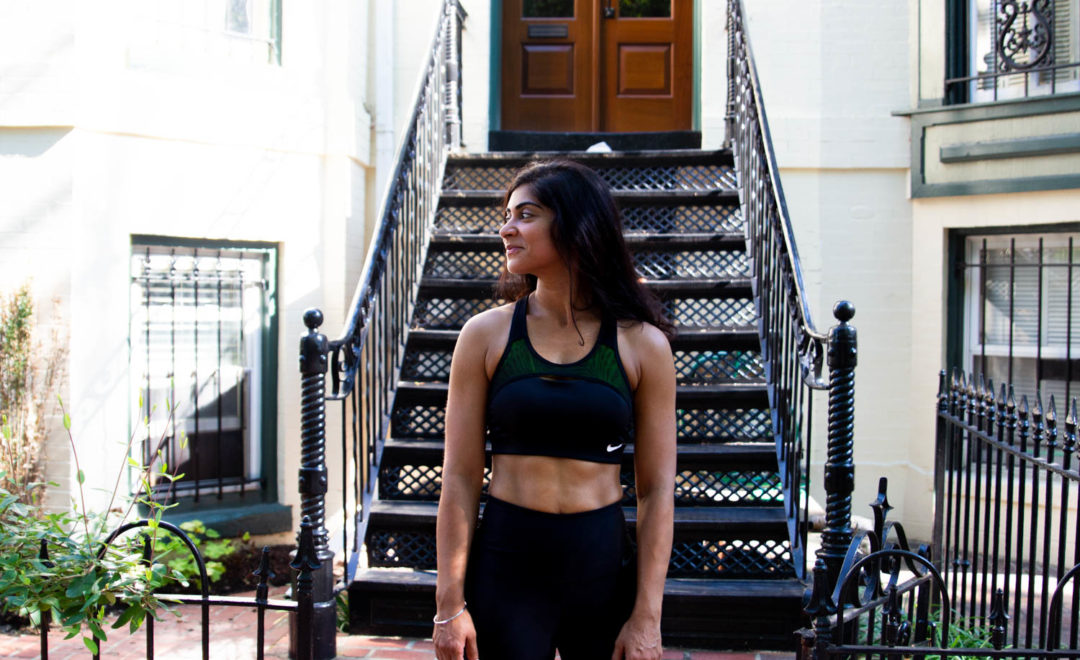
To an outsider looking in, the first line of the Cut Seven manifesto, We are Cut Seven. Not a Gym. A Team. might seem seem like a nice thought. But it’s hard to grasp the truth of those words before you hit the turf.
I once asked Chris about the meaning behind that one-liner. And in typical Chris Perrin wordsmith fashion, he said, “I want people to know we actually give a fuck about each other.” And when he paused to think of an example he added, “Like, EVERYONE knew when B got married.”
We did. Everyone knew when Bhavna (B), the same girl who passed everyone in bear crawls, flew down to Florida to marry her now-husband, Sameer.
When I interviewed her for this post, B told me, “I met a whole, new group of friends through fitness. You don’t need to go out and get drunk to meet people. ‘Hanging out’ can be going hard in a workout.”
And if you never got the chance to hang out, workout, or get passed by her in frog runs, here’s everything you didn’t know about your teammate, B.
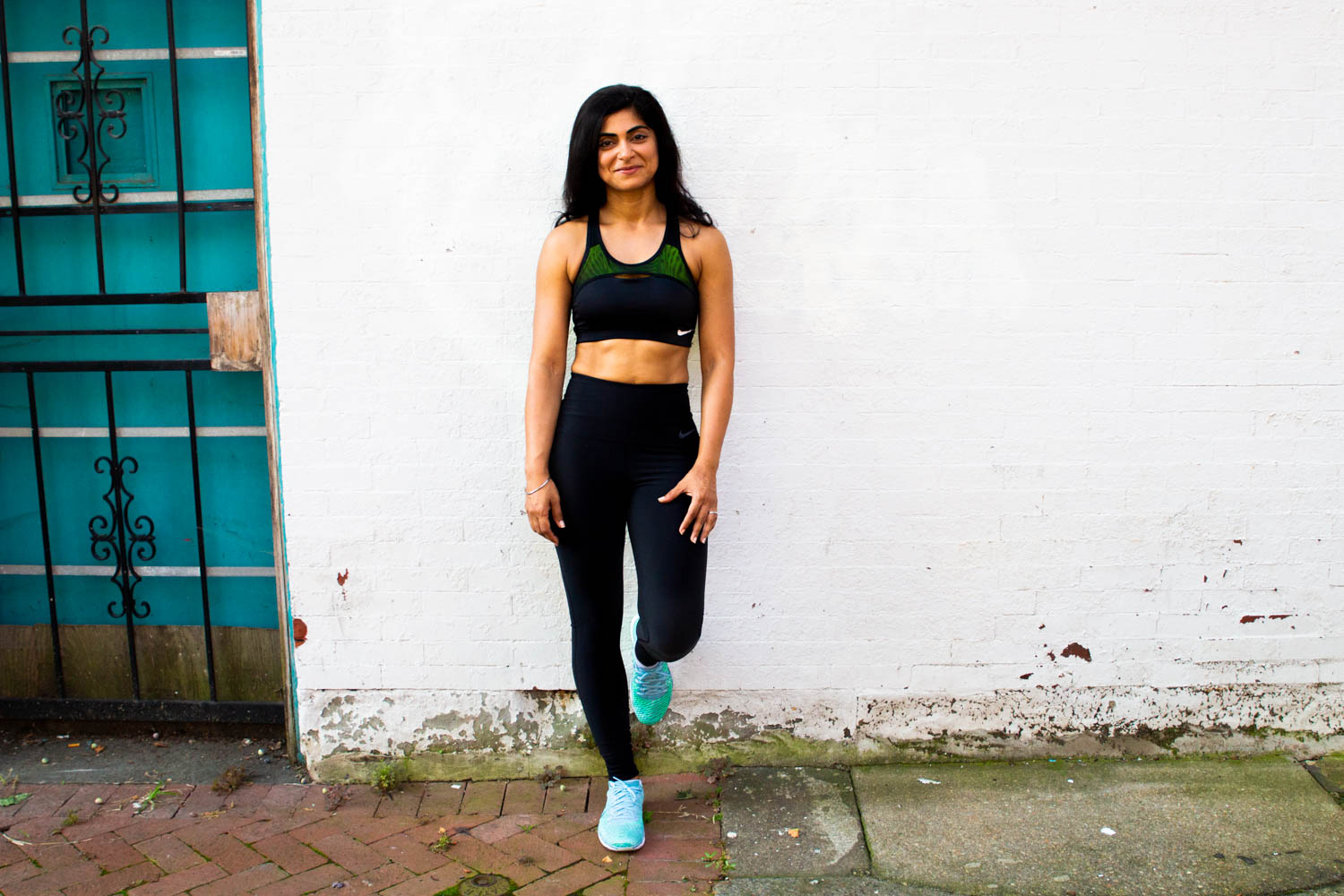
Let’s start at the beginning. When did you join Cut?
I moved from New York to DC in January of 2016. When I arrived, I tried Elevate, Reformation, and a few spin and pilates classes. Nothing was challenging enough.
I knew Chris because he coached a huge workout at the Nike store the year before I moved. He taught at Orangetheory, way out in Virginia. I went to one of his classes and he told me he taught an outdoor bootcamp. When Chris and Alex finally sent out an e-blast about the pop-up, I showed up at the first or second class.
Were you always an athletic person? Did you do any sports while growing up?
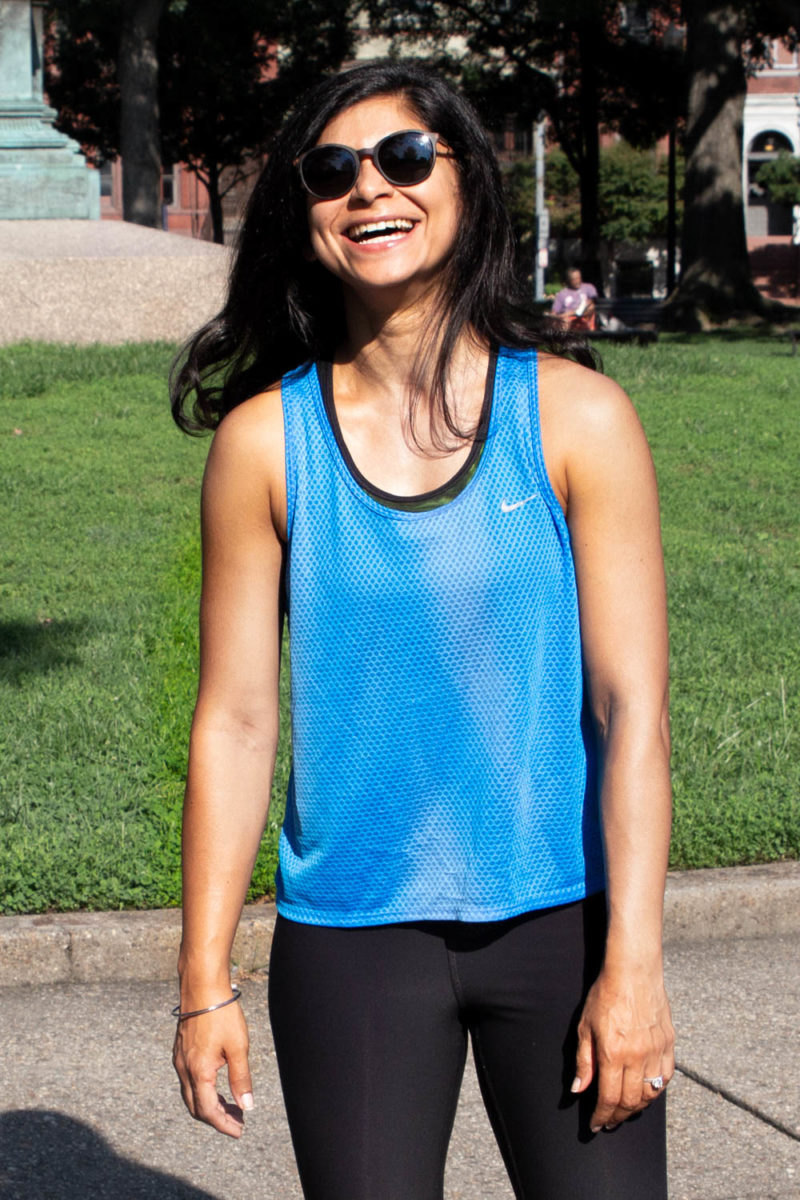
Actually, I didn’t start working out until five years ago in New York. It’s a funny story—this celebrity trainer Andy Speer got a chance to do his own workout video, Anarchy. He trained a few of us and put us on an eight-week meal plan. After that, I was hooked. Working out became my daily routine. It was a release from work. The harder my career got, the harder I worked out.
I found fitness so much later in life, sometimes I wonder how I would have turned out had I grown up playing sports. I danced and performed on stage, but I think I would have really enjoyed a team sport.
Can you expand on, “The harder work got, the harder I worked out”? What’s your career like?
I’m a litigator. It involves trials, going to court, and always working against one deadline or another. After ten or twelve years of that you need a mechanism to work out all your stress or tension.
In New York, I didn’t have a lot of free time. I worked at a firm run on billable hours. Your worth was measured by the last case you won and how many hours you billed. It’s the culture built by the profession. Working as many hours as I did, suddenly I realized I wasn’t as little as I used to be. That’s when I realized I should probably work out long-term, for my health.
After trying so many different studios when you moved here, what attracted you to this one?
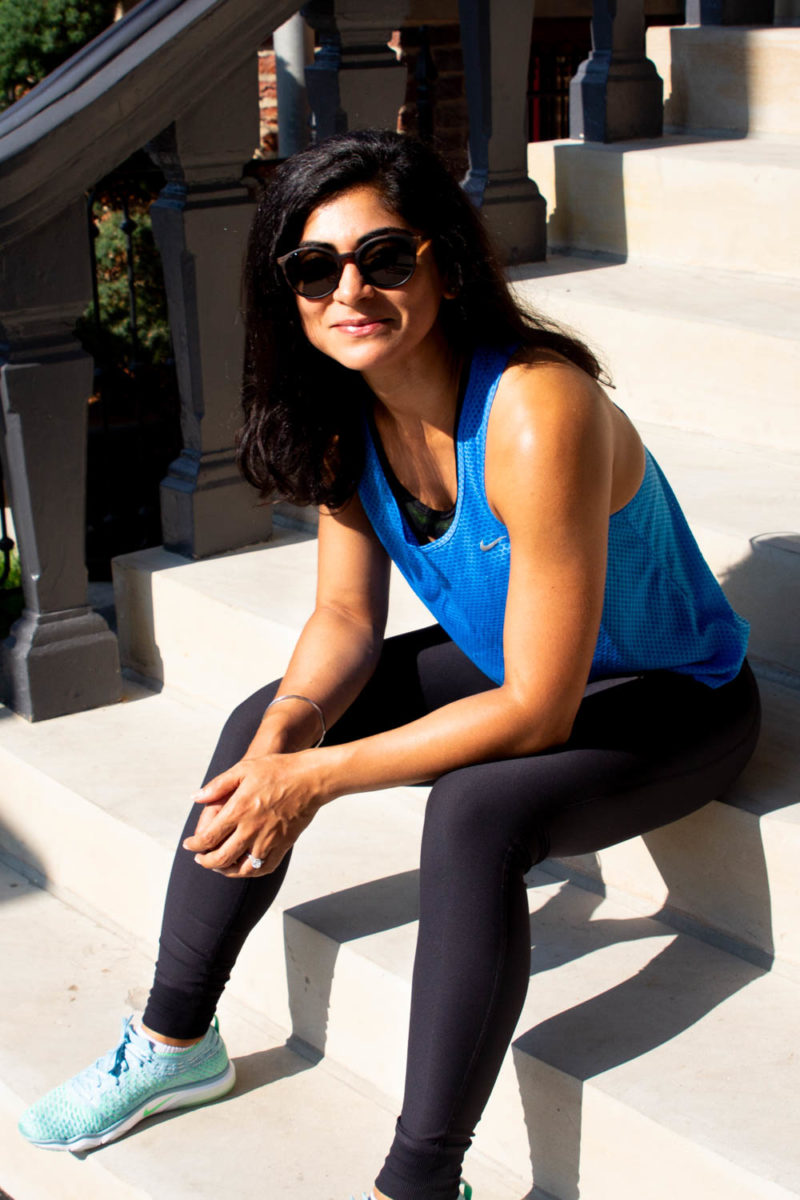
Energy.
People come here to push themselves. I find that to be true for the team as a whole, not just one-or-two people. We push ourselves and others, each in our own way. Tassa will shout my name. Sean takes me on in bear crawls. Peter somehow always manages to dance in the middle of class while everyone else is dying. There’s so much camaraderie between classes, bumping in to those who took before you. You just can’t find that other places.
After a decade in New York, I moved to DC knowing only one other person in the city. It’s hard to make friends later in life. The more I came to Cut regularly, the more I recognized faces at 6:30PM or Heart Day. Over time, I got to know so many folks I never would have met otherwise, like Melania, Sophie, or Chetna. I don’t live in their neighborhood. They’re not lawyers. I don’t know how I would have crossed paths with them. The only other time I collectively met so many new people was the start of undergrad or law school.
do you ever wish you found fitness earlier in life?
Culturally, working out is not emphasized in Indian families. Grades are emphasized. It’s about getting the best SAT scores and into the best schools. It’s a very immigrant mentality: No one can take your education away from you, and therefore that’s where you should put your energy.
The expectation is you’re going to be a doctor or an engineer. Even a lawyer is like, “Ok, that’s runner-up.” You’re expected to be in the sciences because that’s how a lot of our parents got here. My husband’s dad is an ER physician. You carve out a place for yourself in America by having a good job that’s respected and wanted by the community. To them, it’s a good way to make a life here.
If I wasn’t raised in a strict Indian family, I don’t think I would have gone straight to law school. I probably would have tried several jobs to find out what I’m good at. But that’s not the expectation. If I had the luxury, I would have loved to find out what hospitality industry is like—after all, I love to cook.
When did you come to the United States?
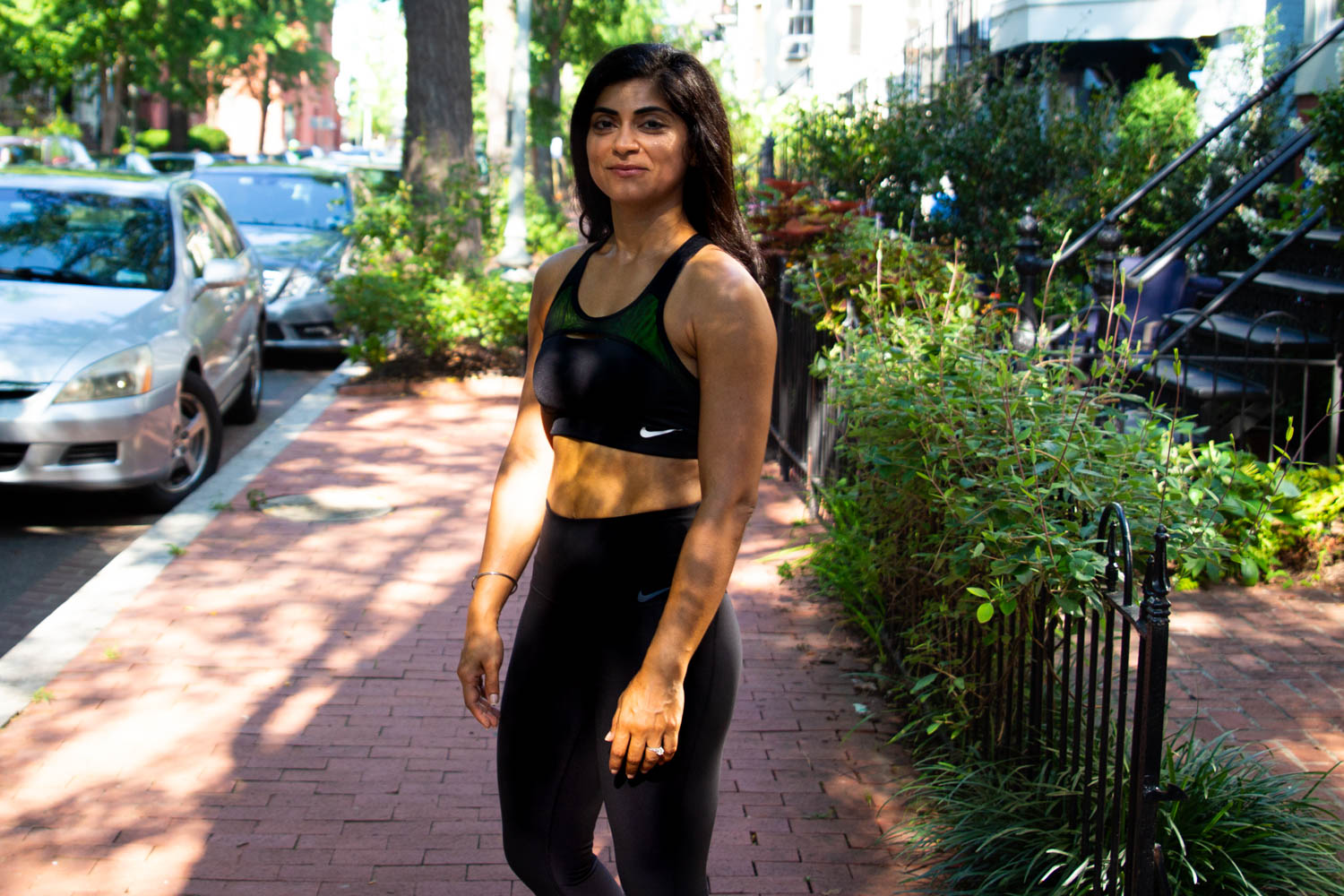
I only got here at the tail end of high school. I would never tell a parent to do that to a kid. Talk about having a tough time meeting new people, when you only have a year before going off to college. People were already checked out, just wanting to graduate. It was a big school, with 400 kids in the graduating class. I can’t say I made a lot of friends, nor was it a memorable year.
In college, I started with everyone else. I met a whole different set of people from New York, Long Island, and internationally. I met people through dance and performance, being active in the student government, and being an RA. I was a pretty cool RA—I looked the other way a lot.
Who or what is your biggest motivator?
Family. My mom is the hardest-working person I know. At my wedding, I thanked her for always putting me ahead of her. She is the most plain person, not driven by things like money or cars. To this very day, she still works two jobs. She’s not in any hurry to retire or work a single job like a normal person—and she does ALL of it without complaints.
She was about 40 when we moved to the United States. The closer I get to that age, the better I comprehend how hard it must have been to start fresh at that point in life. And she did it so I could live here and be who I wanted to be. I didn’t want the typical life in store for me in India. I didn’t want to be married at 24 or live with extended family; I wanted the freedom to live my own life.
Although my mom’s family immigrated here before us—her mom, brother, and sister—I lobbied for a YEAR to convince her to move. Finally, she relented. When we got our green cards she said, “You better go to med school, because that’s why we’re moving!”
When you’re not working or working out, where can people find you?
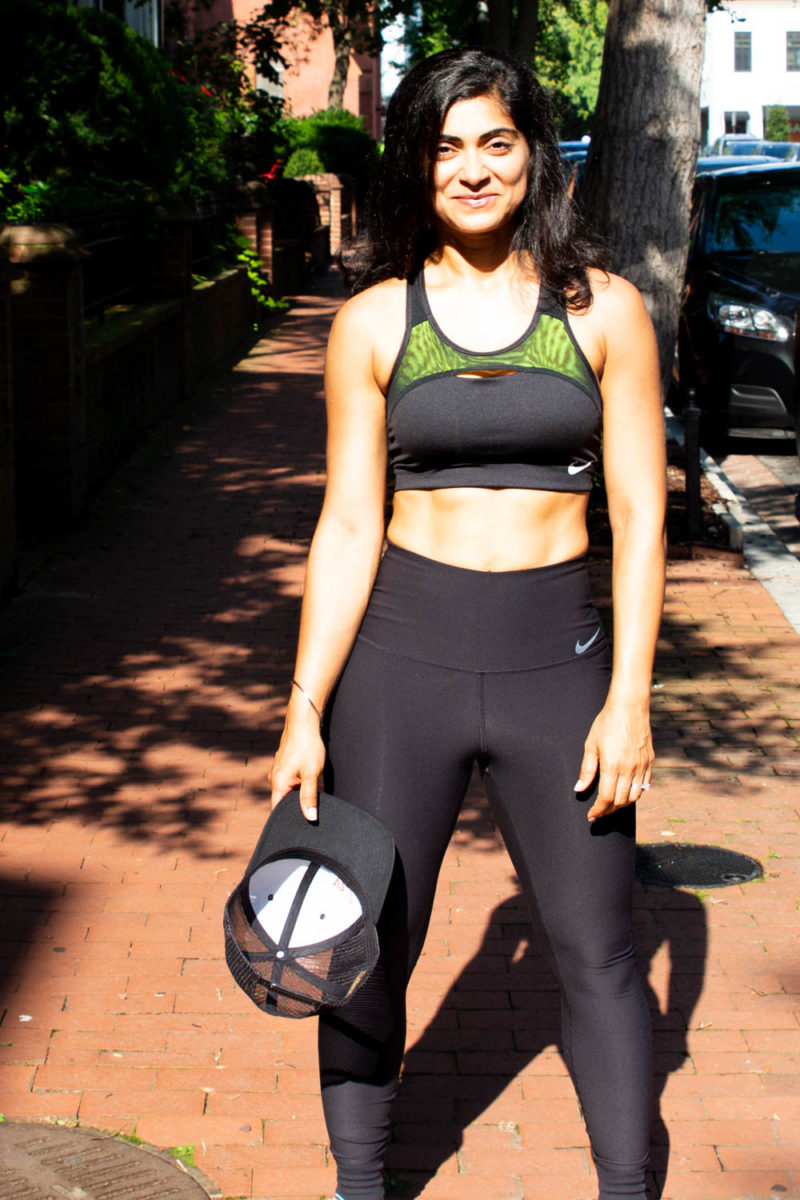
Sundays are my lazy days. After working out at Cut, I have a few hours where I can lay on the couch and watch Anthony Bourdain on the Travel Network. I’m still incredibly sad.
My husband and I bought a condo on the H Street Corridor, so you can usually find us hanging out on our roof. I love cooking, and finally learned to cook Indian food three years ago. And I listen to a LOT of podcasts—How I Built This is my favorite.
Oh! And I take swimming lessons on 16th Street. I never learned to swim since I grew up in a city. A year ago, after falling off a boat I told myself I was going to learn. I’m happy to report I’ve gotten much better.
Like many teammates, you have a high-stress career. What advice do you have for maintaining a sense of balance?
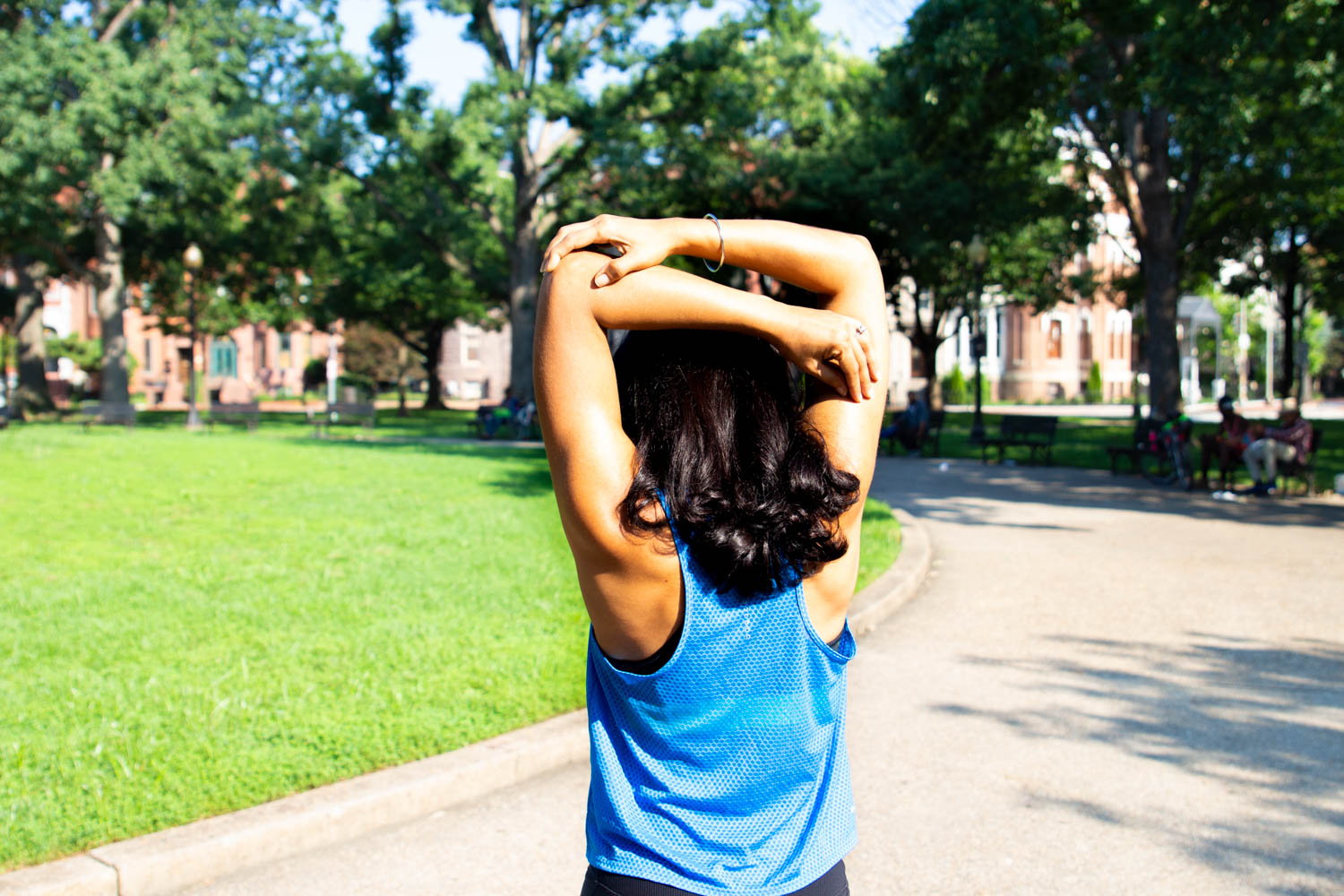
I thrive off the go-go-go, and [inherently] have a, “I can’t fuck up; I can’t take time off,” mindset. But you HAVE to do something for yourself on a daily basis. Nothing is more important than your health—both physical and mental.
The better I got at working out, the better I became at managing stress at work. It’s very cyclical, helping me to stay centered and prioritize. I’m my own worst critic. Usually, if I do something wrong I’m like, “I’m an idiot. How did I not see that?” But here, if you screw up you get a second chance the next round. I take that attitude with me at work. One mistake is not the end of the world.
If I have any advice to my teammates, it’s this: Don’t take yourself so seriously. You are probably better at work or working out than you think. The people in this room want nothing but the best for you and from you. When you get down on yourself, look around at the people who appreciate you for who you are.